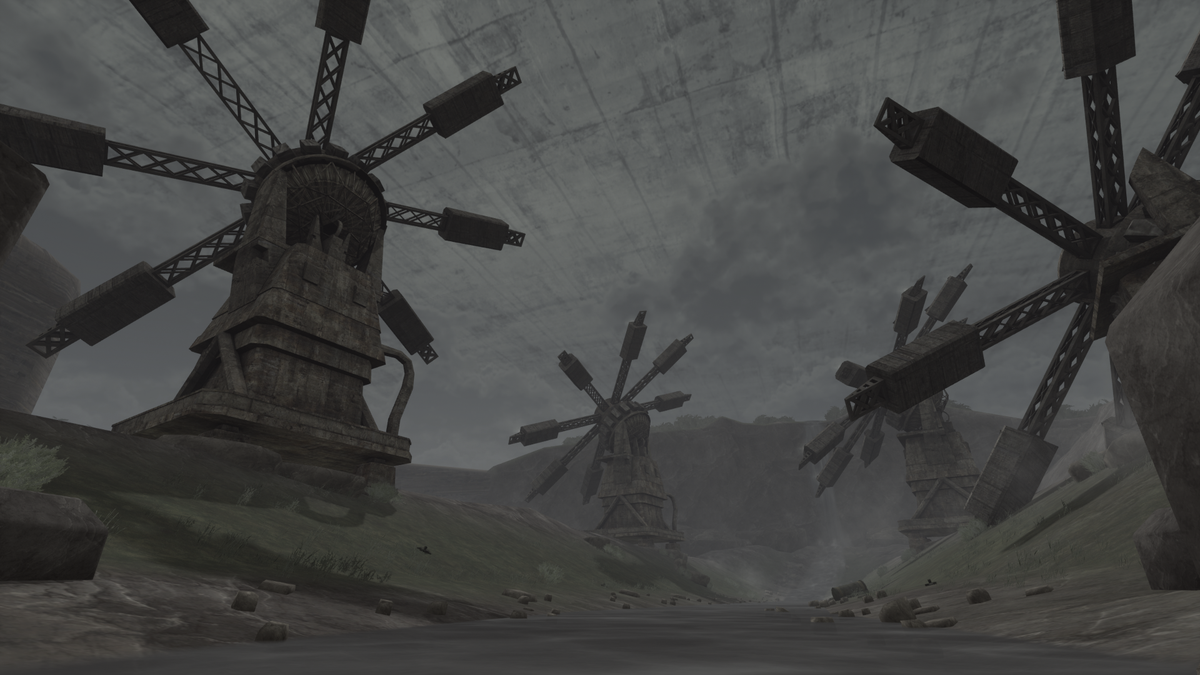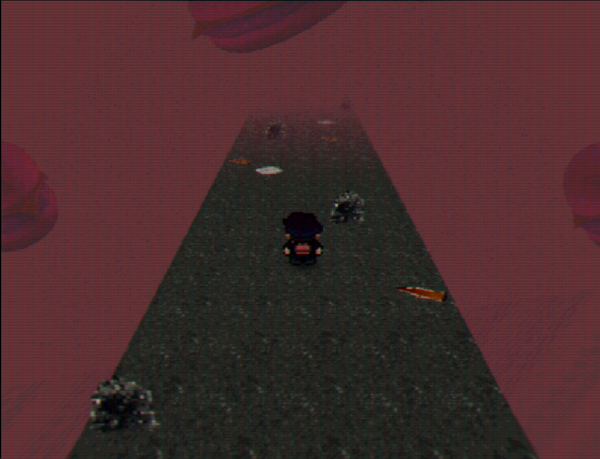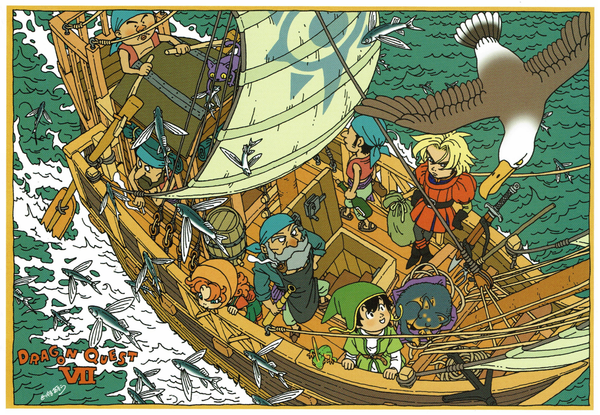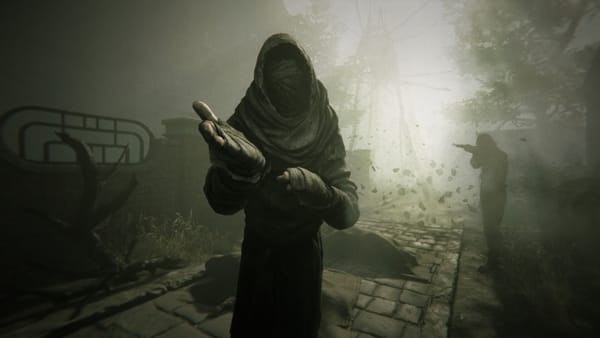There Is No Escape
But there is still hope in Our World.

Nothing blooms here. Every plant you water will rust. The sky is a physical ceiling, the columns that hold it must stretch down into the void. These bridges stretch for miles, they are turned invisible by infinity. Far enough from the horizon, everything disappears from your vision.
Mech broke down on me when I was looking for the exit. Metal junk in the Metal Garden. Grab my pistol, check the neuralink, strap on the jetboots. Danger is lurking everywhere and simultaneously nowhere in this cement prison. Civilizations have crumbled and the world has decayed. Society has devolved into outright violence. Trenchcoat-wearing bandits shoot on sight, lionmen charge furiously with waving swords and fluttering warbanners. They are looking for a way out, and they do not welcome strangers into their ranks.
The world of Metal Garden has an uncanny gravity. It punctuates the combat scenarios. As blood and bullets and sparks and explosions fly by, both yourself and your adversaries will jump and float briefly, gracefully, with an unnatural weight.
But we all slowly descend and hit the same ground—the same Earth littered by abandoned highways, dilapidated structures overgrown with greenery. The same Earth where rusty gears noisily continue their mechanical processes, despite centuries of neglect. The same Earth where everybody is trapped. We are stuck in the belly of the megastructure and there is no escape.

Tinerasoft's Metal Garden is like Halo if the developers at Bungie had more courage. It would've taken bravery to purposefully leave large swathes of the eponymous planetary ring hostile-free, rather than inundate the player with gunfight after gunfight.
When I was but a lass, way too young to be playing Halo, I would often get lost in its massive levels. There was something equally beautiful and terrifying about its vistas and landscapes. I remember walking through the beaches of The Silent Cartographer, staring out into the ocean, feeling both at peace and in the throes of terror. When the enemies and your fellow marines are dead, the brutalist architecture, the tombs of the Forerunners, take on a liminal meaning.
In Halo, this pathos is incidental, but it is purposeful in Metal Garden.
I am scared of liminality, the eerie stillness. My fight or flight reflex activates when I see abandoned buildings, isolated apartment blocks without a living soul, skyscrapers once bustling with life and movement, now frozen in time. It leads me to ponder on decay, makes me pessimistic, makes me think about the End of the World. When we are all gone, our houses will remain but they will take new meaning—or an absence of meaning, given the end of humanity.
The battle scenarios are spread out enough that you get to explore this world that has been decaying for eons. The world of Metal Garden is muted, somber. But Our World is brighter, different, yet I feel it is decaying too.
I am trying not to give way to despair as of late. I still hold in my heart hope for Humanity. Yet, fascists roam the streets where I live, some even wear fancy uniforms that offer them carte blanche for state-sanctioned violence. Climate collapse seems inevitable. Class divides are getting wider, soon even the middle class will die, and all that will be left is the poor and the rich. After that, maybe decades away, mayhaps even centuries, there will be no humans left.
How lucky is Master Chief that he is able to escape from the Halo Ring as it implodes on itself—in a high-octane, action-packed ending level, rife with orchestral booms and explosions, speeding away from death and destruction on your trusty warthog—but we are not so lucky. We are stuck in this World and there is no escape. The denizens of Metal Garden are equally unlucky. There is no escape.

Nothing can arise, or be built, or even exist in a videogame world without some relation the Real World. Metal Garden is no different. Mega-highways rise and loop for miles, cars litter their broken remains. I connected a cable from my head to the cranium of a deceased raider and saw his memories. Amidst the graphical glitches I recognized certain words and concepts — ministers, politicians, bickering and arguing while the world around them is slowly crumbling.
Despite its fantasy/sci-fi conceptualizations, there's a certain 'groundedness' to the world of Metal Garden. Its structures are familiar, not just because they invite parallels to a better-known shooter, but in how it reflects the Real World. Walk anywhere through the Midwestern United States and see: abandoned farms, factories, bastions of industry now haunted by ghosts.
There's a cynical edge to the game, to its benefit. It presents a world in stasis, a world that refuses to die, that persists, despite the fact the cataclysm has already arrived and everyone is fighting for scraps. No wonder everyone seeks to escape. What hope, what life is there in such a violent, cruel world?
We are not There yet. We still a have a chance to change the world for the better. There is no escaping the Metal Garden.

When you approach the end of the game, you don't find a way out. You see that it is not just the World and everyone in it that is trapped, but the entire galaxy you inhabit is locked down, held down my vast machinery that stretches far, past the horizon itself. No wonder the gravity is so bizarre. We can all float but we will eventually come down, hard.
We are similarly trapped in the Real World. The Earth is our only home. What a rotten shame that we have to share it with fascists and oligarchs and tech bros. We cannot distract ourselves, there is a Real World that needs saving and we must fight for it. No matter what, however, the World will eventually die and everyone within it will perish as well. Liberation can only be found in the Real World. The world of Metal Garden is too far gone, it has totally collapsed.
There is no escape—love is already dead in the garden of steel. May the next world be kinder and more nurturing. We, in the Real World, still have a chance. We will lose our opportunity if we do not confront the ills and woes of the World head on.
Stop Caring is reader supported and 100% free. Please consider subscribing or making a one-time donation to make more of this possible. All donations on this article go directly to the author.





